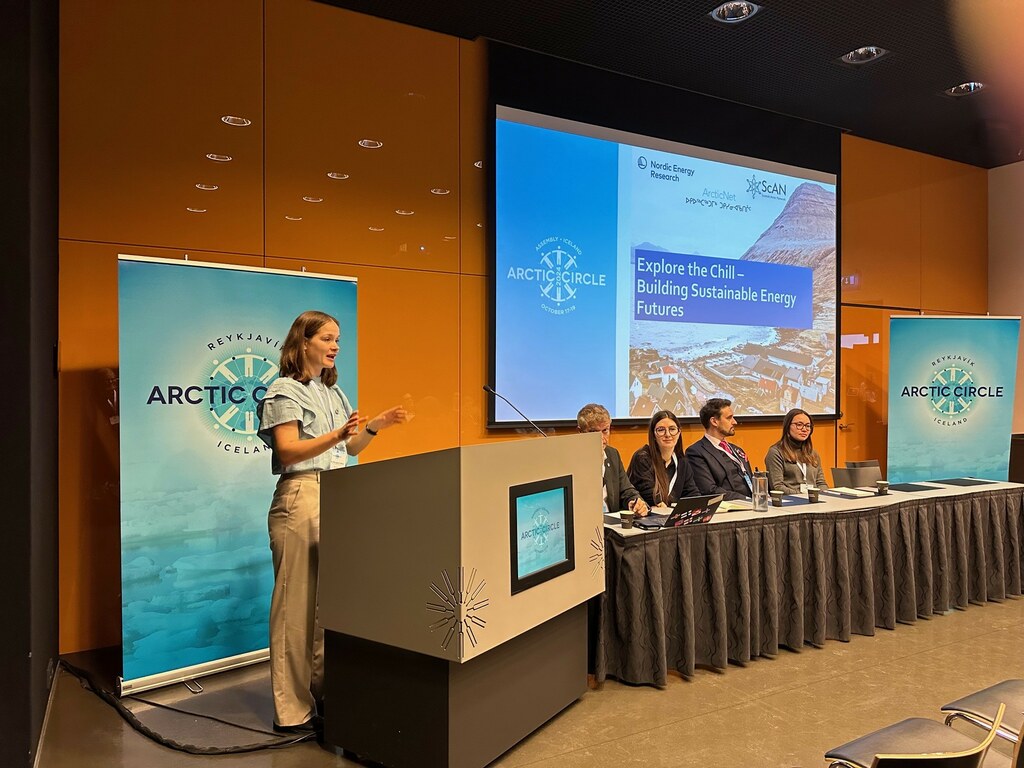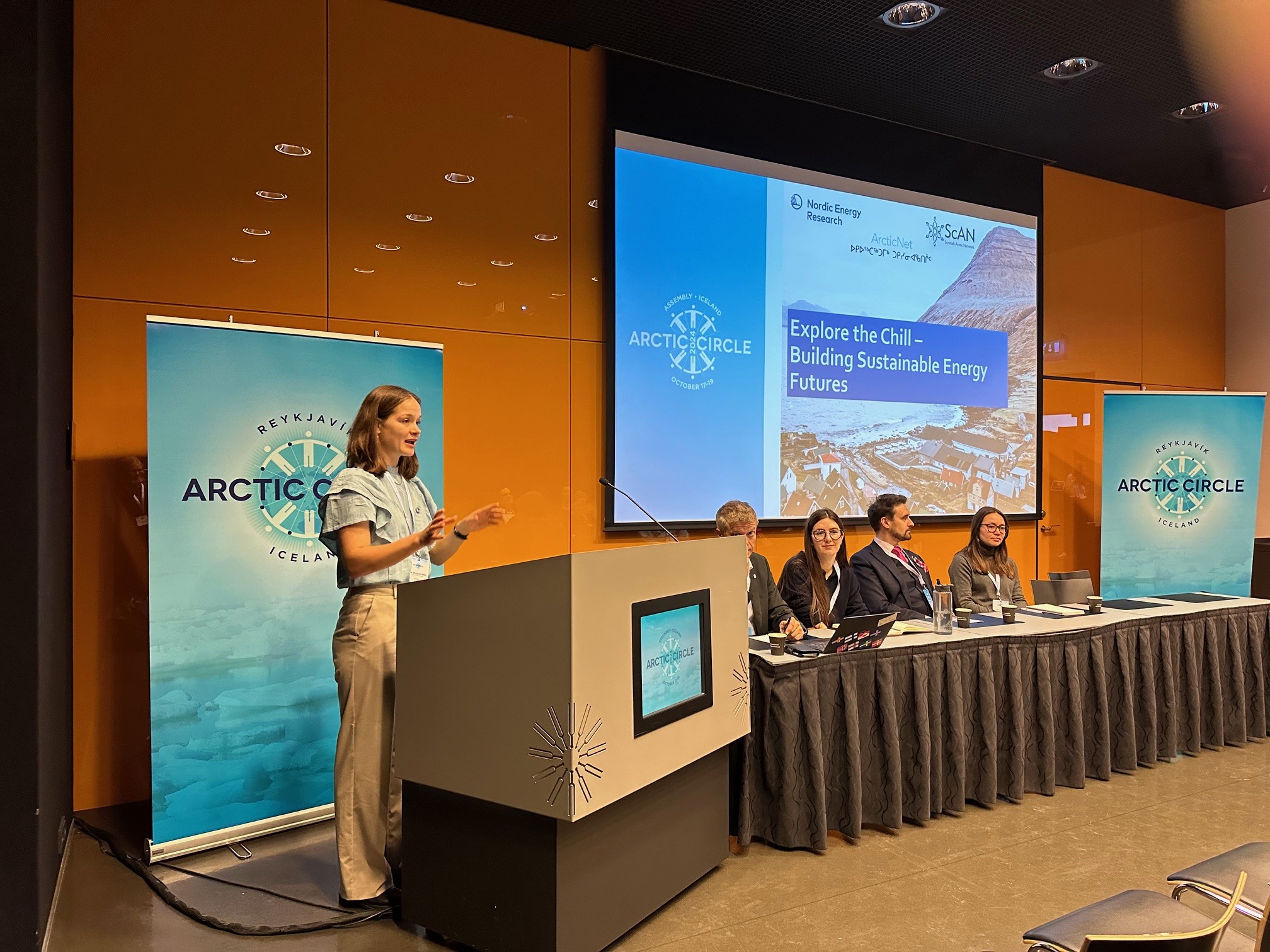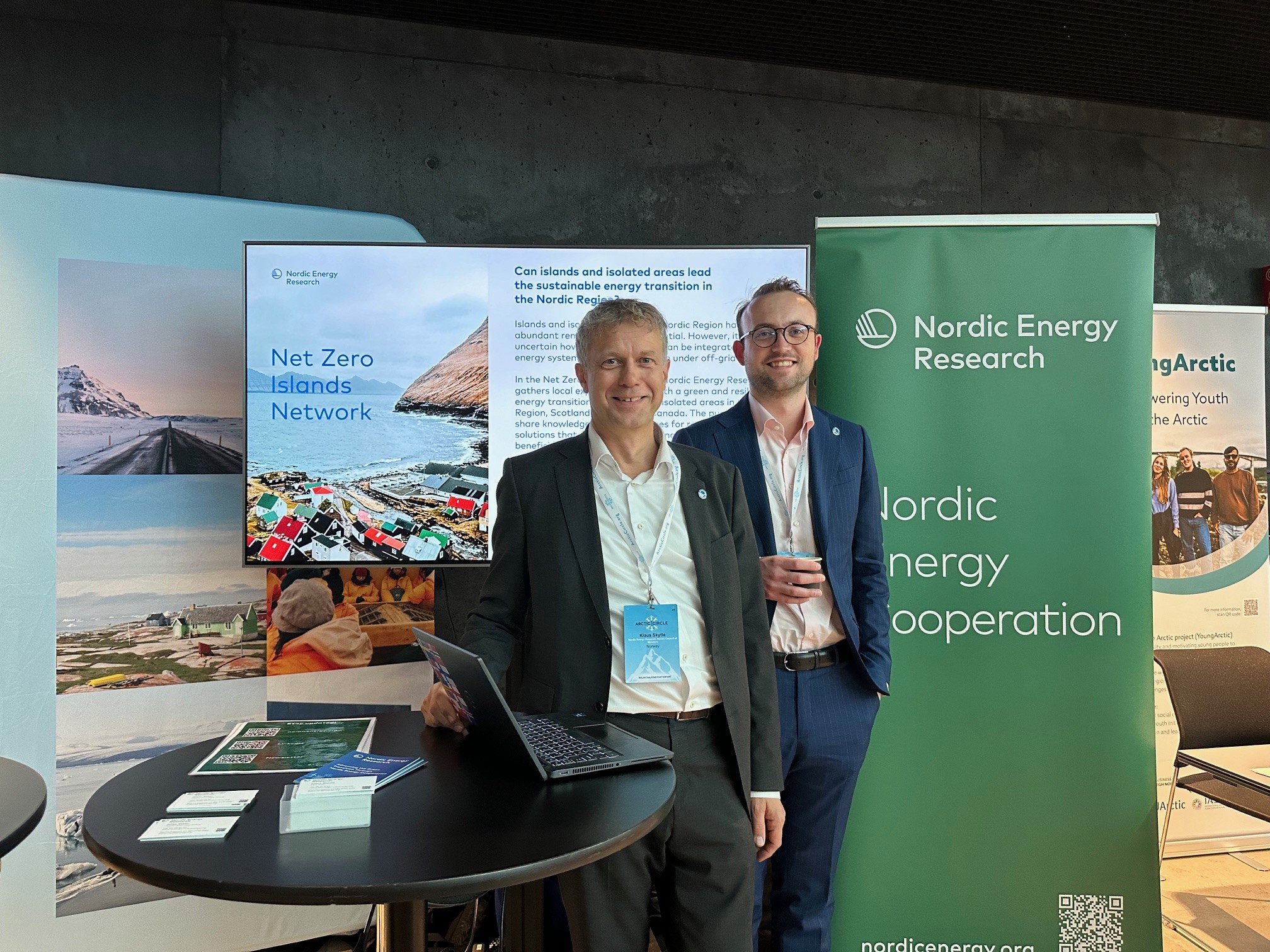
Hydrogen and sustainable energy in focus at Arctic Circle 2024
From 17 to 19 October, the annual Arctic Circle Assembly gathered global leaders, organisations, and researchers in Reykjavik, Iceland, to discuss the key challenges facing the Arctic region. Nordic Energy…
From 17 to 19 October, the annual Arctic Circle Assembly gathered global leaders, organisations, and researchers in Reykjavik, Iceland, to discuss the key challenges facing the Arctic region. Nordic Energy Research hosted two energy sessions: one on building sustainable energy futures through community collaboration, and another on unlocking the untapped potential of hydrogen in the Nordics and the Arctic.

Ditte Stougaard Stiler, Higher Executive Officer at Nordic Energy Research.
Building sustainable energy futures through collaboration
The first day of the Assembly, Nordic Energy Research hosted the session Exploring the Chill: Building Sustainable Energy Futures. This session highlighted the importance of working closely with local communities in remote areas to ensure they benefit from the green energy transition. Dr Michael Ross, Industrial Research Chair in Northern Energy Innovation at YukonU Research Centre, encapsulated this theme: “We don’t work for the communities; we work with the communities.”
Dr Ross was joined by Dr Daria Shapovalova, Director of the Aberdeen University Centre for Energy Law, Annalise Klein, Programme Architect at the Alaska Centre for Energy and Power, and Klaus Skytte, CEO of Nordic Energy Research. Together, they shared insights and best practices from regions as diverse as Alaska, Canada, Scotland, and the Nordic countries, demonstrating how renewable energy projects can be implemented in various types of communities. Their experiences highlighted the necessity of cooperation between a broad range of actors—governments, industries, and communities alike—to ensure these projects are successful and beneficial to all.
Unleashing hydrogen potential in the Nordics and Arctic
On the second day of the Assembly, Nordic Energy Research hosted a session dicussing hydrogen’s significant potential in the Nordic and Arctic regions. Hydrogen could play a transformative role in the region’s energy landscape, but as H.E. Kalistat Lund, Greenland’s Minister for Agriculture, Self-Sufficiency, Energy, and Environment, stated in his opening address, stronger incentives are necessary to attract investment and unlock this potential. Greenland, in particular, is actively working to draw in investors to support the development of hydrogen on the island.
Klaus Skytte, CEO of Nordic Energy Research, gave attendees a sneak peek into the forthcoming Nordic Hydrogen Valleys report, which is the first-ever mapping of hydrogen value chains across the Nordic countries. Skytte revealed that only 0.2% of the region’s hydrogen potential is currently in operation, with just 1% under development. He emphasised the importance of building stronger business cases and securing long-term investment to accelerate hydrogen’s role in the energy transition.

Klaus Skytte, CEO of Nordic Energy Research, and Ole Aune Ødegård, Adviser at Nordic Energy Research.
Panellists Jón Björn Skúlason, General Manager of Icelandic New Energy, and Erla Sigríður Gestsdóttir, Head of Division at Iceland’s Ministry of Environment, Energy, and Climate, added valuable insights from both the industry and policy perspectives. Skúlason noted that “oil is too cheap,” which weakens the business case for hydrogen, further underscoring the need for enhanced incentives and policy support to realise the full potential of hydrogen in the region.
Looking ahead
For more information about our work on hydrogen, the upcoming Nordic Hydrogen Valleys report, please contact Ole Aune Ødegård. For more information about the Net Zero Island Network, please reach out to Ditte Stougaard Stiller.
We also invite you to join us at the Nordic Hydrogen Valleys Conference on 22–23 January 2024 to continue the conversation on the future of hydrogen in the Nordic region.

